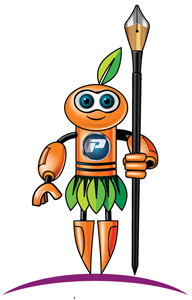Technical Writing: Six Insights
- Sunita Vyas
Technical Writing? Does it only mean writing user manuals and How-to-guides? Is it a boring and monotonous job without any challenges?
Many people do not understand the scope of this profession. There are many myths and misgivings regarding the role of a Technical Writer. Most people feel that the job of a technical writer is limited to creating documents for a product or a service.
If you have been thinking so and hesitating to take up technical writing, then take out some time and read this post to understand what exactly is Technical Writing.

Technical Writing is Not Just Limited to Writing
For many, the first thing that comes to their mind when they hear about this profession is writing users manuals and how-to-guides. But that is not the case. A technical writer (TW) is responsible for communicating complex information in an easy-to-understand form. A TW is a mediator between software developers and end-users.
Now, it is not necessary that only documents are used to communicate information to the users. The information can be in the form of audio, video, graphics, images, charts, or some other medium. The role of a Technical writer includes not only creating documents, videos, and presentations, but also interacting with different people like developers, engineers, and product managers to understand the product accurately.
Technical Writing is Challenging
If you have chosen technical writing thinking that it is an easy and no-challenge-needed- profession, then you are mistaken. Technical writing involves doing many things depending on the industry and organization you are working for.
For example, if you work in a product-based company, your role will be understanding the product and its features, preparing What’s New, Release Notes, writing online help of the product, creating supporting information like videos, graphics, presentations, etc. One day, you might be doing Product documentation and the other day, you might be preparing Press Releases and catalogs.
Scope of Technical Writing is Vast
Technical writers are required in several industries to communicate complex information to their clients. Fields like, Information Technology, Software Development, Banking and Finance, Engineering, Aeronautics, Consumer electronics, Automobile Manufacturing, Defence, Aerospace, Medical and Healthcare, Heavy Machinery industry are a few examples that require technical writers.
As technology is growing at a fast pace, there are thousands of tools and applications available in the market. If companies have these applications and services, they will need writers who can explain their applications to the users smartly and effectively.
No Specific Professional Degree Required
There is no specific degree that you must have to get into this field. But what is a must-have quality for a tech writer is the ability to understand complex concepts and convert them into easy-to-understand information. You should have good knowledge of the industry and strong communication skills. You need to have the ability to think critically, research and analyze information, and ability to interact with subject matter experts to gain a thorough understanding of the product and service and communicate the information accurately to the end-users.
Documentation is Essential Not Optional
Many people think that nobody reads these long user manuals and guides. Had this been true then the technical writers would not have been in demand across all the industries. Whenever a user gets stuck with an application or tool, then these technical documents are the only way for them to clear their doubt and understand what they need to do next.
Providing documentation of a product and services is not optional, it is mandatory. No company can ship out products without proper documentation so the role of a technical writer will always be in demand.
Gather Special Skills as You Grow
It doesn’t matter if you are in a software company or a manufacturing company, as a technical writer, you will acquire a special set of skills. As you work with the engineers, scientists, SMEs, and the product owners, you will develop analytical thinking, researching skills, listening ability, and interaction skills. With time, you will gain skills to manage your work effectively.
Technical writing is not a cake walk but it is no rocket-science either that you can’t start with. If you have your interest in the domain and a passion for writing, then you are the right candidate for this profession. So, don’t think too much, make up your mind and start looking for a Technical Writing job.
Good luck with your career as a Technical Writer!
About the Author
Sunita works as a Technical writer in Mumbai. She is a Computer Applications graduate and has a Masters in English. She is particularly interested in Reading and Writing and is thus fortunate in synching her passion and profession into one.

Read more in Edition 2
Articles
- Domain Knowledge by Ravi Dhumane
- Readability Metrics by Nandini Sridharan
- Multi-tasking by Romi Ganguly
- SWOT Analysis by Mridula Menon
- Parts Catalogue by Andre Streefkerk
Travel Diaries by Vineeta Pant
- Poem and Painting: Under the Pale Moonlight by Nupur Pattnaik
- Poem: Don’t Wanna Remember by Vishal Gupta
- Hobby: Direct Clicks by Mohan Raghuram

